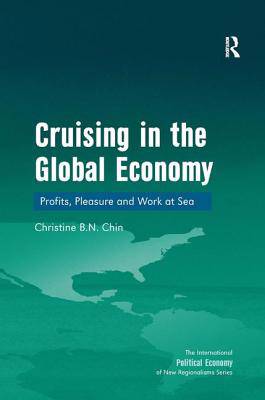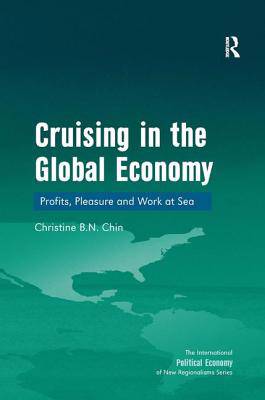
- Afhalen na 1 uur in een winkel met voorraad
- Gratis thuislevering in België vanaf € 30
- Ruim aanbod met 7 miljoen producten
- Afhalen na 1 uur in een winkel met voorraad
- Gratis thuislevering in België vanaf € 30
- Ruim aanbod met 7 miljoen producten
Zoeken
€ 202,95
+ 405 punten
Omschrijving
The business of cruise tourism in recent years has commanded news media attention especially on issues of environmental pollution, passenger safety and worker rights, yet consumer interest in cruise vacations has not been adversely affected by negative publicity and it continues to grow at an average of 8-9% per annum. This unique mode of business focusing on the production and consumption of pleasure at sea and on land offers us an unprecedented opportunity to analyze the manner in which ongoing economic restructuring processes to bring about free markets in goods, services and labour can and does involve both life on land and at sea. This interdisciplinary analysis elicits an examination of states' relationship to the maritime regulatory structure governing ship ownership, management and operations, cruise lines' business strategies, development of port communities to capture cruise-related revenue, changing leisure consumption patterns and meanings, and the employment of foreign migrant workers as seafarers.
Specificaties
Betrokkenen
- Auteur(s):
- Uitgeverij:
Inhoud
- Aantal bladzijden:
- 198
- Taal:
- Engels
- Reeks:
Eigenschappen
- Productcode (EAN):
- 9780754672425
- Verschijningsdatum:
- 22/05/2008
- Uitvoering:
- Hardcover
- Formaat:
- Genaaid
- Afmetingen:
- 156 mm x 233 mm
- Gewicht:
- 529 g

Alleen bij Standaard Boekhandel
+ 405 punten op je klantenkaart van Standaard Boekhandel
Beoordelingen
We publiceren alleen reviews die voldoen aan de voorwaarden voor reviews. Bekijk onze voorwaarden voor reviews.











